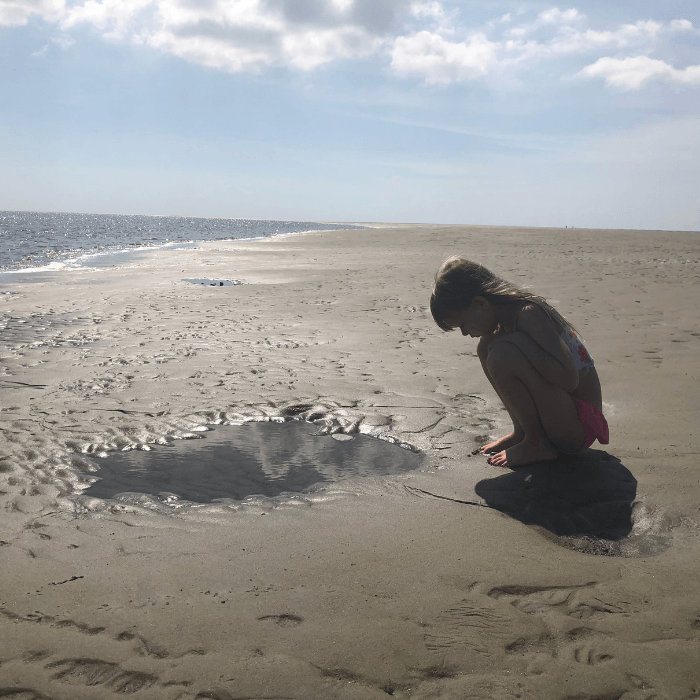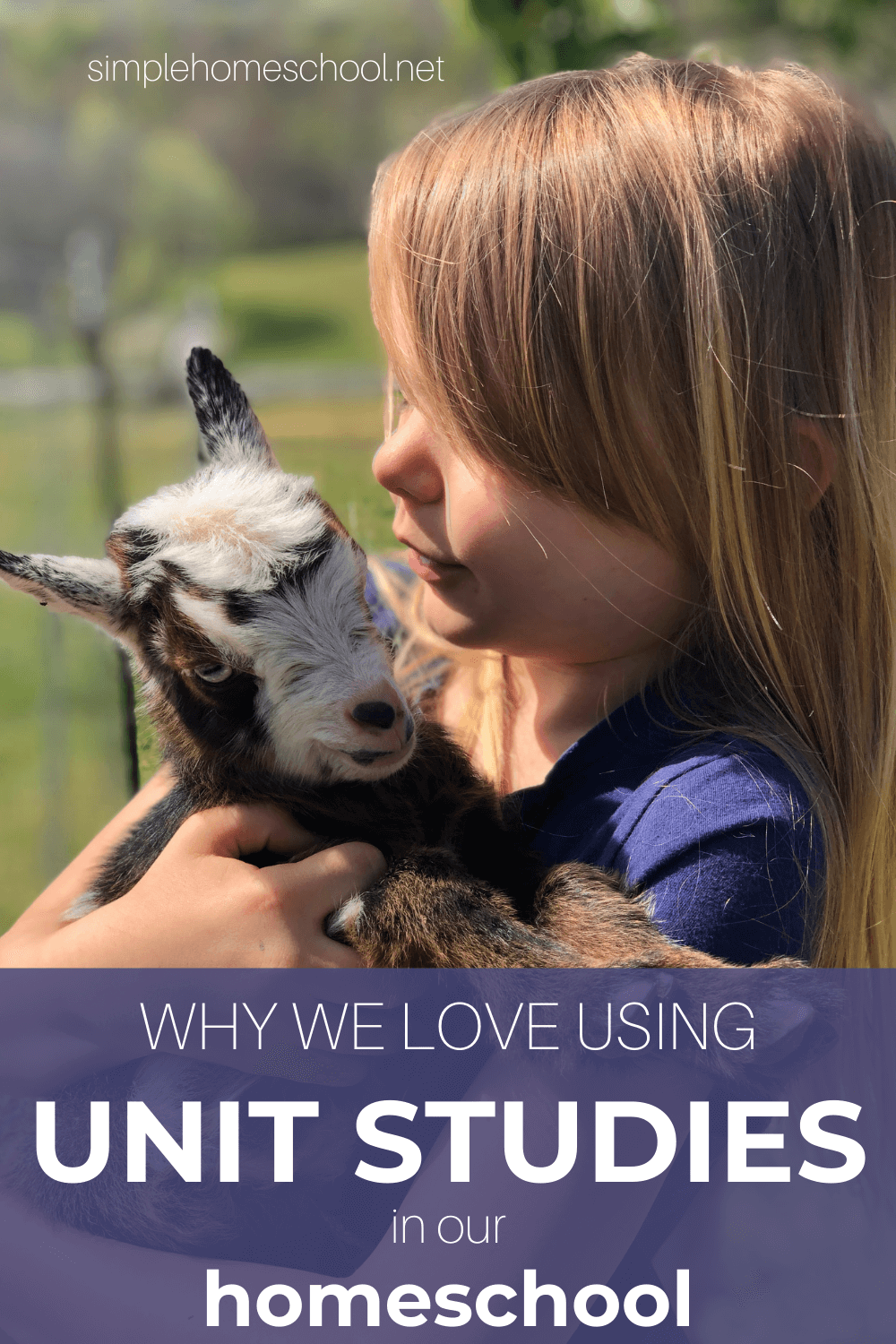4 Reasons Why We Love Using Unit Studies In Our Homeschool ~
Written by Erin of Nourishing My Scholar
My children have always had intriguing interests: dinosaurs, the ocean, national parks, mythical creatures, WWII, frogs, and many more.
Sometimes their interests are fleeting, like when they watch for the spring birds to arrive. Other passions last for years, like my son and his obsession with WWII or how both children have been raising goats for several years.
Most interests fall somewhere in the middle, and many start with a simple book or question that needs answering.
Unit studies are different from traditional homeschooling because kids focus on a single subject, such as birds, gardening, the black plague, or ancient Egypt, to name a few. My children often learn reading, writing, history, and science by studying a single topic!
I like to start by strewing interesting items, books, and hands-on activities. Then I gauge my children’s interests. I don’t go all-in at once, but “feed” them a bit more of a subject as they digest what’s already been served.
Sometimes my children discover new interests all on their own, but the best unit study covers a subject my child is passionate about.

4 Reasons Why We Love Using Unit Studies In Our Homeschool
1. They are all-encompassing
When integrating math, reading, history, science, social studies, geography, and art, you encompass the subject in a real-world learning style.
My children have always learned best this way, and they retain more information the more in-depth their study.
2. Everyone is learning together
Children of all ages and different levels can learn together with unit studies which makes it great for families with varied age ranges. I’ll never forget the time we made a unit study out of getting a Great Pyrenees puppy!
We learned the history of the Great Pyrenees dog breed, the geography of the breed, the children tracked the growth of our new puppy with charts, and we read great books and watched videos about Great Pyrenees and basic dog training.

3. Unit Studies Allow for Deep Dives
Unit Studies bring out the best in a subject. You never know how deep a dive into a topic you will go or how much fun you’ll have. Follow all the rabbit trails of learning you like when diving into an interest.
Whether my children are interested in geography, science, history, or anything in between, unit studies help us travel paths unknown through their interests.
Unit studies in our homeschool offer a way for dynamic and engaging learning that is curated specially for my kiddo’s unique needs.
4. Our interests, not a rigid curriculum, lead our learning
I talk with my children about their interests, then map out the different subjects I’ll cover with our unit study.
Once I have a topic in mind, then I feed my children’s passions with some of the following:
- Read alouds and books on the subject
- Hands-on activities that include art, origami, puzzles, science experiments, etc.
- Worksheets if and when they suit us
- YouTube videos, movies, and documentaries that fit our theme
- Educational games
- Field trips to zoos, museums, 75th D-Day celebrations, the beach, etc.
It’s simple and inexpensive to steward this process, and we don’t need a curriculum!
Unit studies in our homeschool have worked well for my family’s learning style. We have reaped so many educational benefits as well as building life skills. What’s not to love about that?!
What’s Your Homeschool Mom Personality? Take Jamie’s quiz now and receive a free personality report to help you organize your homeschool based on what your personality type needs most!



 Weekend homeschool links: June 17th
Weekend homeschool links: June 17th
This way of doing unit studies really appeals to me. But how do you do it with multiple children? What happens if they are not passionate about the same theme at once ? How can you explore all the different subjects (history, geography, science, math, etc) when you have to come up with different ideas and activities for each child ?
I hear you, Rebecca! I like to think of unit studies as a trail of crumbs, where one thing leads to the next, and you continue to toss out crumbs as long as your kiddo continues to pick them up. This feels more doable to me than trying to get books and games and documentaries and all the possibilities together all at once.
I do think there is real value in having siblings learn about another sibling’s interest, even if it isn’t their own. It broadens their education and their worldview, and also reminds them, in a healthy way, that not everything in homeschooling revolves around them…which is a helpful real-world lesson! It’s definitely an art and not a prescriptive science.
I hope this helps a bit!